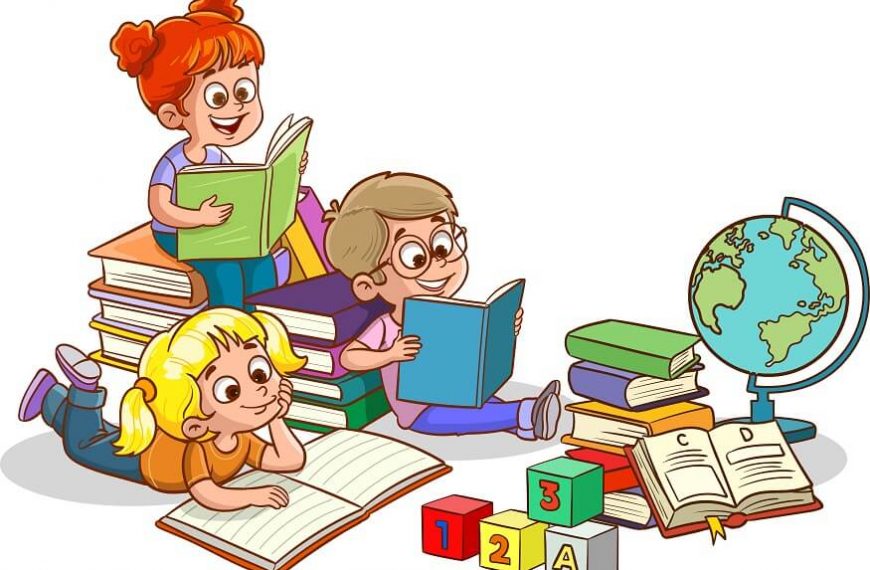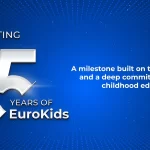Many parents ponder questions like, What is preschool? or What are the benefits of early childhood education? Then there are debates like Daycare vs Preschool! The value of early childhood education is rising, and parents must be aware of the distinctions between these terms. These terms can sometimes be confusing, but they represent different educational environments, each with its own purpose and benefits. Let’s explore these distinctions together, using relatable examples to help you understand what sets them apart.
Imagine a daycare centre as a cosy home away from home, where children aged six weeks to five years find a nurturing and safe environment while their parents are at work. Daycare facilities offer basic childcare services while also ensuring the health and safety of kids throughout the day.
Preschool, on the other hand, is like a magical land of learning adventures. It is a preschool instructional programme for children aged three to five years. A preschool is an institution that offers structured learning experiences. The experience aids in the development of not only cognitive and social skills but also helps in emotional and physical skills, your little ones’ cognitive, social, emotional, and physical skills. Here, little ones embark on exciting journeys of exploration, creativity, and discovery.
Lastly, kindergarten is like the gateway to the world of formal education. It is the first step in a child’s academic journey, usually catering to children aged five to six years. Kindergarten builds upon the foundational skills acquired in preschool, introducing more structured learning experiences in areas such as literacy, numeracy, and science.
Let’s explore some examples of the benefits of early childhood education:
- Cognitive Development: Early childhood education programs provide a foundation for cognitive development by sparking children’s curiosity and encouraging their problem-solving abilities. Imagine a preschooler proudly completing a puzzle or a kindergartener eagerly reading their first words. These early learning experiences stimulate their minds, helping them develop language skills, critical thinking, and a thirst for knowledge.
- Social and Emotional Development: Being a part of an early education programme gives your children everyday opportunities to engage with their friends. This aids in the development of their social and emotional skills.
- Language and Communication Skills: Early childhood education programs focus on developing strong language and communication skills. Imagine a daycare child enthusiastically sharing their day’s adventures, a preschooler engaging in imaginative play with their friends, or a kindergartener confidently expressing their ideas during a class discussion. These experiences help children build vocabulary, improve verbal expression, and enhance listening and comprehension skills.
- Readiness for Formal Education: Little kids who get to be a part of a well-structured early childhood education programme are better prepared for formal schooling. Imagine a preschooler following classroom rules and routines, confidently raising their hand to answer a question in kindergarten, or a kindergartener independently completing their assignments. The foundation for a smooth transition to primary school and beyond is laid by these early learning experiences, which promote self-discipline, time management, and the capacity to adjust to new surroundings.
Picture a group of toddlers giggling together during playtime, preschoolers collaborating on an art project, or kindergarteners sharing stories during circle time. These interactions promote empathy, teamwork, communication, and a sense of community.
What is a Daycare Centre?
Think of a daycare centre as a gathering place for kids of all ages to play and learn. A daycare centre is a place where children, typically aged six weeks to five years, receive care and supervision.
In a daycare centre, children spend their days engaged in various activities tailored to their developmental needs. From playtime to naptime, mealtime to basic learning experiences, daycare centres provide a structured routine that ensures children feel secure and comfortable throughout their time there.
While some daycare centres may incorporate educational elements into their programs, their primary focus is on providing a loving and supportive atmosphere. Trained caregivers and staff members create a warm environment where children can develop essential social, emotional, and physical skills. Through interactive play and group interactions, little ones learn how to share, cooperate, communicate, and form meaningful relationships with their peers. We hope that sufficiently answers the question: what is a daycare centre?
Preschool vs Kindergarten
Preschool and kindergarten both play significant roles in a child’s educational journey. Let’s explore the primary differences between the two using relatable scenarios.
So, what is preschool? Picture preschool as an enchanted garden, where children aged three to five years enter a world filled with wonder, laughter, and growth. In preschool, little minds are nurtured, curiosity is embraced, and creativity flourishes. Children engage in a range of activities here. These activities develop their early literacy skills and numeracy skills. They learn through play, exploration, and hands-on experiences, igniting their imaginations and fostering a love for learning.
Now, imagine kindergarten as a grand adventure, where children aged five to six years step onto the path of formal education. In kindergarten, the foundations laid in preschool are built upon, preparing children for the challenges and excitement of primary school. Here, children delve deeper into literacy and numeracy, refining their skills and expanding their knowledge. They follow a more structured routine mirroring a regular school day, learning to follow instructions, manage their time, and adapt to the expectations of the classroom environment.
Conclusion
Finally, recognising the distinctions between daycare centres, preschools, and kindergartens is critical for parents looking for the finest early childhood education alternatives for their children. Each of these educational environments has its own unique advantages that cater to different stages of a child’s growth and development.
While parents are at work, daycare centres provide a loving and secure atmosphere for young children, assuring their well-being. Preschools nurture children’s curiosity, creativity, and social skills, preparing them for formal schooling. Kindergartens build upon the foundations laid in preschool, introducing a more structured learning environment to foster academic readiness.
You can provide your child with a solid foundation for future success by picking the best early childhood education programme. Early childhood education offers various opportunities for growth, development, and lifelong learning, whether it’s the homely setting of a daycare centre, the enchanted journey of a preschool, or the epic journey of kindergarten.
If you’re looking for a trusted early childhood education provider, consider EuroKids. With a strong focus on holistic development and a well-crafted curriculum, we offer a nurturing and stimulating environment for children to grow and thrive. To learn more about us and our programs, visit our website today.


















